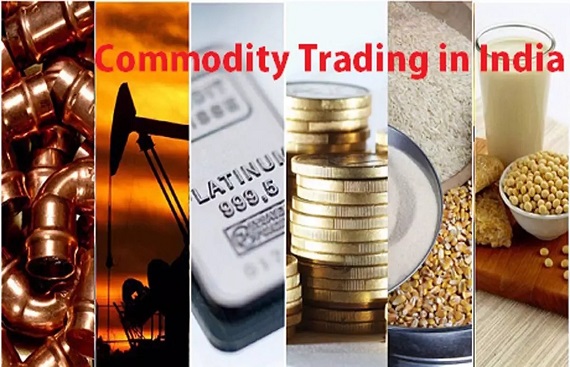Everything You Should Know About Commodity Trading in India

The current commodity market in India has a considerable bearing on your daily life. The rate of gas, fuel, items at the supermarket, jewellery, etc., are dependent on the commodities’ rates in the commodity market. There is immense importance of price change in the commodity in your routine lives; it recommends that a commodity offer excellent returns if correctly traded. Thus, you must learn about all the information and the functions of commodity exchange that a beginner should know while entering a commodity market in India.
What is Commodity Trading?
Commodity trading solely trading in commodity spots and futures (derivatives). A commodity is a primary raw material in commerce which institutions or individuals purchase or sell. Moreover, they are frequently the building block of more complex goods and services. All these commodities are usually divided into five major categories:
MCX iCOMDEX: MCX BULLDEX®, MCX METLDEX®, MCX ENRGDEX®
Bullion: Gold, Gold Mini, Gold Guinea, Gold Petal, Silver, Silver Mini, Silver Micro
Base Metals: Aluminium, Copper, Lead, Nickel, Zinc
Energy: Crude Oil, Natural Gas
Agri Commodities: Cardamom, Cotton, Crude Palm Oil, Kapas, Mentha Oil, Rubber
Pros & Cons of Commodity Trading
As everything has its pros and cons, investing in the commodity trading exchanges in India has its advantages and disadvantages too.
Pros:
- Stable Margins: Basically, margin requirements for some commodities are stable and lower than other asset classes. Thus, an investor knows how much margin needs to be put in a contract.
- High Liquidity: Future markets are typically liquid, particularly in currencies, indexes, and other regularly traded commodities. Therefore, an experienced investor can enter or exit as per circumstances.
- Hedging against cost fluctuations: Forward contracts are generally utilised as hedging equipment in industries that undergo high levels of price fluctuations.
- Straightforward Pricing: Future pricing is easy to comprehend by some investors. Moreover, it’s normally based on the cost-of-carry model. In this, the future rate is estimated by adding the cost of carrying to the spot rate.
- Protection Against Future Risks: Most people enter into forwarding contracts to protect themselves and handle risks in a much better way. Moreover, they are also used to limit risk against foreign currency exchange.
- No Time Decay: Time decay occurs when the assets’ value reduces with time, which is reasonably common in options. Although, futures don’t have to struggle with time decay.
Cons:
- Expiration Dates: Generally, future contracts include an expiration date. Thus, a future contract might become less appealing as the expiration date nears.
- No Control Over Future Matters: One of the major drawbacks of investing in the commodity markets is that you don’t control future events.
How to Select a Broker for Trading in Commodities?
Picking the best broker is vital for successful commodity trading. These skilled brokers act as an intermediate between you and the exchange. That’s why an investor must stay cautious while selecting a broker for commodity trading in India. Follow these tips to choose the right broker:
- Filter out some broker options.
- Go through their experience and credibility.
- Ensure to compare prices such as brokerage fees.
- Evaluate the quality of their trading platforms.
- Check if your broker has a great customer support team.
All in all, the commodity trading market in India can change your fortune as the sky’s the limit to make money in this market.
Read More News :

